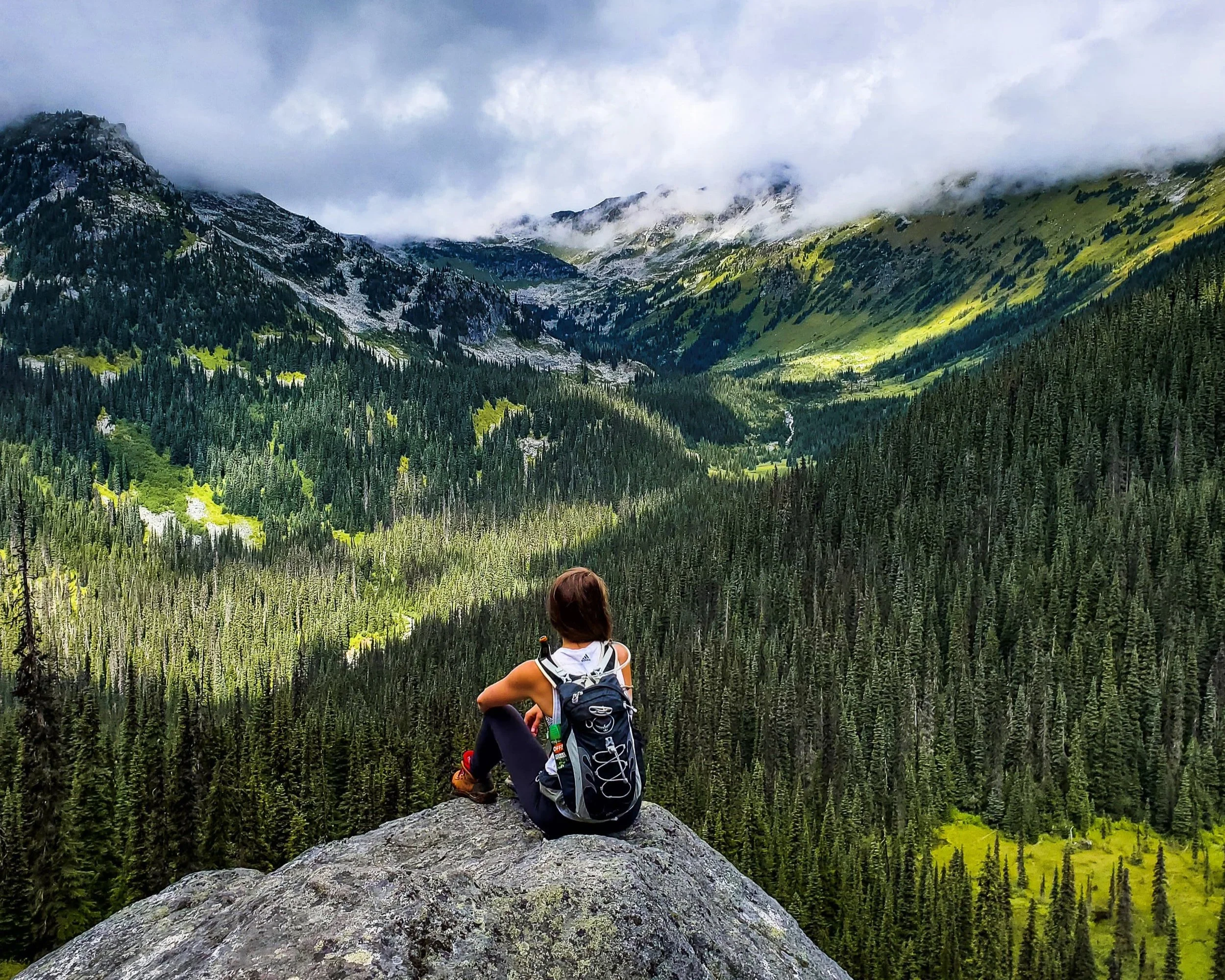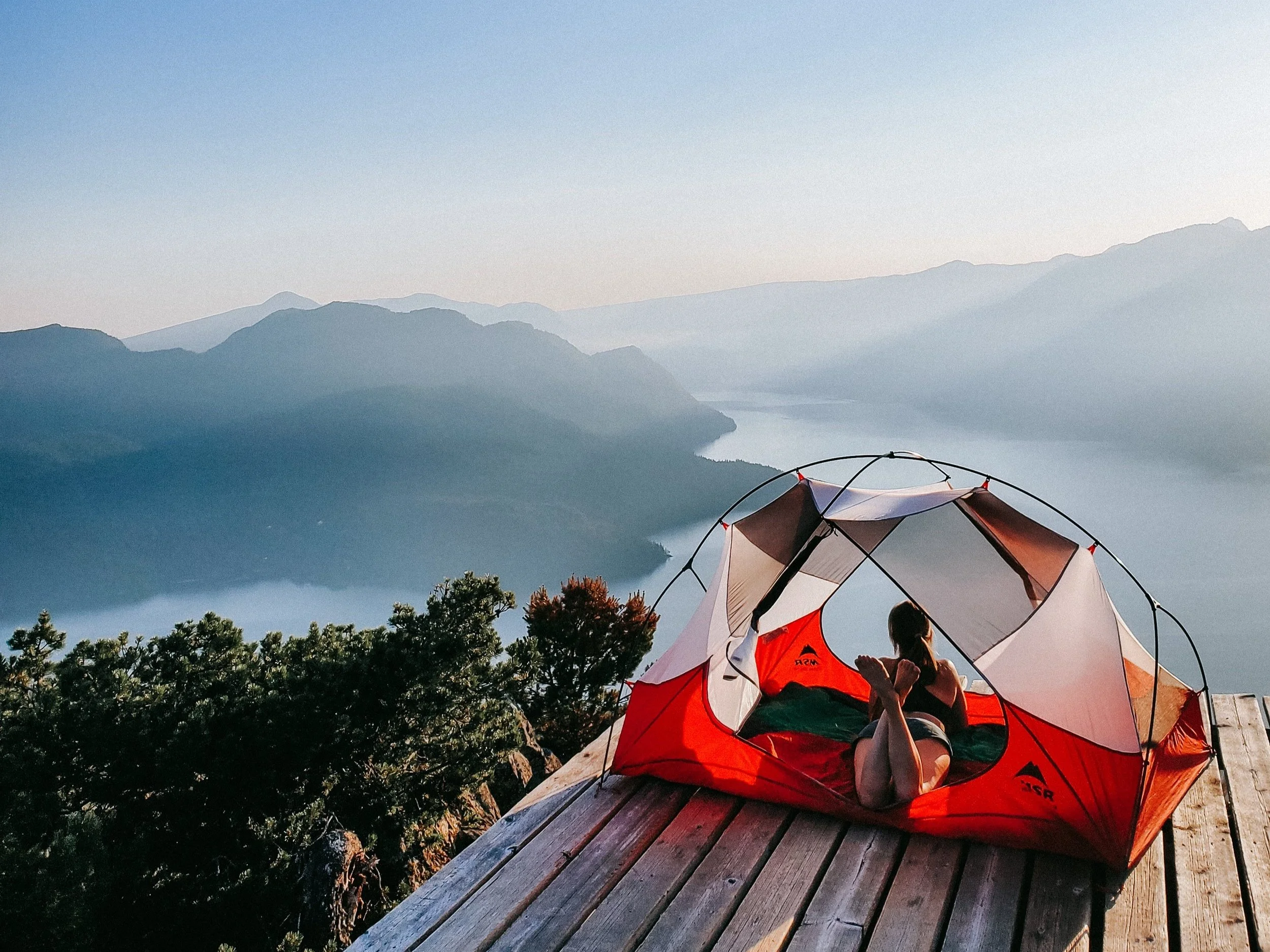
Leave No Trace
My goal is to help inspire you to get outside and find your love for nature. It is also to inform you about keeping our trails, rivers, and forests clean and to help keep wild animals and ourselves safe.
What are the Seven Leave No Trace Principals?
(Focused on Day Hiking)
-
Plan ahead and prepare.
Make a trip plan! This includes: finding a map - and bringing it with you, researching the weather and what gear you may need, preparing food, and telling someone where you are going, when you will be back, and what to do if you are not back on time. Your Ten Essentials are included in this preparation! Carrying them can be a lifesaver.
-
Travel on durable surfaces.
When hiking, make sure you stay on trail as much as possible. Do not step off unless necessary (e.g., narrow trails for passing or a wildlife encounter). Walk single file, even through mud. If you are off trail, walk on durable surfaces: rocks, sand, dry grass, snow, and bare ground. If you are stopping to eat lunch, tent pads, designated or bare spots, and large rocks make for great places to rest. Altering or creating new trails damages surfaces like delicate mosses and wild vegetation.
-
Dispose of waste properly.
If you carry it into nature, carry it out! All your garbage, even your toilet paper, should come out with you. Micro-waste can be a big problem! These include items such as bandaid wrappers or the corners of food packages. Please make sure all garbage leaves with you. Everybody needs to poop sometimes - if you need to go, please dig a hole 15-20cm deep and at least 60m from water sources, trails, and campsites. When you’re finished, cover the hole and place a rock, stick, or other loose items on top.
-
Leave what you find.
Did your mother ever tell you, “leave the flowers for others to enjoy?" This is what I think of, however, it applies to more than just flowers. It includes: rocks, shells, plants, traditional, historical, and cultural elements as well. This principle also applies to leaving nature the way we found it, without our rock formations for example.
-
Minimize campfire impact.
This tends to be more for backpacking, although I want to mention it. Campfires can have a lasting impact and leave burn marks on surfaces. Campfires have caused many wildfires and destroyed thousands of hectares of forests in BC alone. Only use designated spots for fires, keep them small, away from additional burning materials, only collect wood that is allowed and is from the ground. Completely extinguish the fire and ensure the ashes are cool before you leave. I opt for a portable cooking stove instead to cook my food because I find the process much simpler.
-
Respect wildlife.
Observe animals at a safe distance. If they become nervous, be sure to give them more space. Respect signs and avoid areas that state closures because of e.g., “nesting season.” Do not feed animals as it harms them, can alter their behaviour, and destroy their food reserves. Be sure to keep any food you bring close to you, some creatures may try to steal your food if it is left unattended. Finally, if you bring a pet, ensure the area is pet friendly and keep it under control. Pick up after your animal, as this can attract animals such as bears.
-
Be considerate of other visitors.
Be kind to people! Hikers going up the trail have the right of way. Walk single file past other hikers. Take any breaks on durable surfaces to the side of the trail so that others may pass you. Many people love to hear the sounds of nature. Please limit your noise. Playing music at a loud volume can be disrespectful to others and the wildlife. If you want to fly a drone in the area, ask anyone nearby if they are alright with it or wait until they leave. Encourage others to follow these principles so that we can keep nature beautiful for everyone for years to come.
Pack out what you pack in!
This one is really important, garbage left behind is a big irk for me. Everything that you carry out into nature, including toilet paper - unless you bury it, should come back out with you. This can include: wrappers, bandaids, Kleenex, etc. As adventurers and explorers, bringing back our garbage means that we leave nature as good as we found it, that animals do not get sick because of our waste, and that other people are able to enjoy the same space you did. Even if you never return to that location, if you leave garbage it can have a lasting impact on the environment and the ecosystem. Please do your part, we all deserve to see these places pristine.
Backpacking
Backpacking and overnight hiking are also passions of mine. I am excited to create some content around this topic in the future, but for now I am focusing on day hiking.

